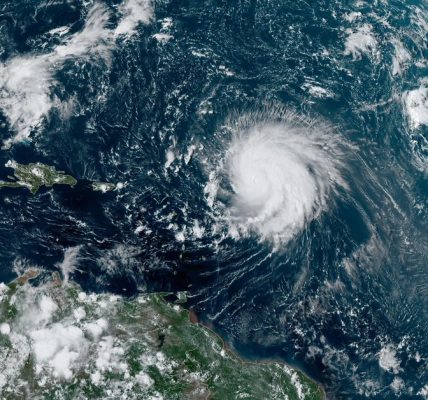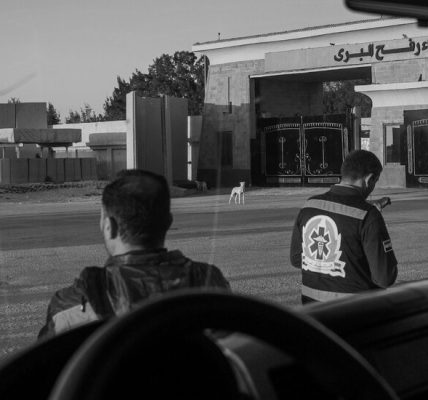Jimmy Carter: The White House Years: His Successes and His Mistakes with the Post-Presidential Resummation
He opposed the Gulf War in 1991 and the U.S. invasion of Iraq in 2003, and he angered many when he likened Israel’s treatment of Palestinians to apartheid in South Africa. He also riled many Americans by suggesting that opposition to President Barack Obama was rooted in racism. More recently, he earned new admirers and detractors alike with his public disapproval of then-President Donald Trump.
Carter did not shy from controversy, and especially when it came to the Middle East, the region of which gave him his greatest foreign policy achievement and his most damaging setbacks as president.
I think Jimmy Carter will continue to be judged by his time in office. I think he’s the most decent man to have occupied the Oval Office in the 20th century.
But the greatest factor in Carter’s rising reputation was his own performance in his post-presidential career. He worked with Habitat for Humanity to rehabilitate homes for low-income families. He taught at Emory University and established his own nonprofit, the Carter Center. And over the ensuing decades, he published more than two dozen books and became an international advocate for peace, democratic reforms and humanitarian causes.
In 2018, Stuart E. Eizenstat, Carter’s chief domestic policy adviser, published President Carter: The White House Years, which historians have praised both as a primary source and as an assessment of Carter’s term. Carter was not a great president but he was a good and productive one according to Eizenstat. He delivered results, many of which were realized only after he left office. He was a man of almost unyielding principle. Yet his greatest virtue was at once his most serious fault for a president in an American democracy of divided powers.”
Historians have generally not rated Carter’s presidency highly, and he left office with his Gallup poll approval rating in the low 30s. In recent years his presidency has been assessed more favorably by several organizations, and his Gallup approval rating has climbed back above 50%, and remained there among the public at large.
The polls broke sharply in the final days, and in November, Reagan captured nearly all the Southern states that Carter had carried four years earlier and won the 1980 presidential election with 489 Electoral College votes. Carter gave up before the polls closed on the West Coast.
The election was very close throughout August and October. But the single debate the two camps agreed to, held on Oct. 28, 1980, the week before the election, was a clear win for the challenger. Carter tried to paint Reagan as an extremists, but failed. The Republican managed to be reassuring and upbeat even as he kept up his attacks on Carter’s handling of the economy and on the rest of Carter’s record.
Reagan won the New Hampshire Republican primary and the Southern primaries, but never looked back. His triumph at the Republican National Convention in Detroit set the tone for his campaign.
Ronald Reagan was a former two-term governor of California who had sought the nomination twice before, and he did not begin 1980 as the consensus choice of his party. He made a tapestry of issues with broad appeal. He proposed sweeping tax cuts as a tonic for the economy, more spending on defense, a more aggressive foreign policy and, just as important, a return to the traditional values of “faith, freedom, family, work and neighborhood.” He also opposed abortion and busing for racial integration and favored school prayer — the three hottest buttons in social policy at the time.
Carter was able to use the hostage crisis to his advantage in suppressing the challenge to his nomination mounted by Sen. Edward Kennedy of Massachusetts. Carter refused to debate Kennedy and made the primaries a kind of referendum on the Iranian situation. Enough Democrats rallied to his side that Kennedy’s bid, a favorite cause of liberal activists and organized labor, fell far short. It contributed to the weakness of Carter in the general election. And what had worked against a challenger from the Democratic left did not work when Carter faced one from the Republican right.
Yet another blow was dealt to Carter’s standing when the Soviet Union invaded Afghanistan to prop up its client regime there. Carter’s decision to have the U.S. boycott the Moscow Olympics in 1980 was less popular than opposing that aggression.
Yet the Iranian crisis had even worse consequences. The revolution saw the overthrow of the Shah, a longtime ally of the U.S., and the installation of a stern theocratic regime led by Ayatollah Ruhollah Khomeini, a fierce critic of the United States. Young people overran the US Embassy in Tehran when Carter granted the Shah a visa to go to the U.S. for cancer treatments. Fifty-two Americans were taken hostage for 444 days. Carter’s efforts to free them were unavailing. Eight US service members were killed in the Iranian desert after an airborne raid failed to free them.
Carter and the Democrats paid a price, suffering more than the usual losses for the president’s party in the 1978 midterm elections, which greatly reduced Democratic margins in both the House and the Senate.
Carter was the first President from the Deep South since the Civil War. He entered politics at a time when Democrats still dominated in his home state and region. He left the submarine corps to take over his father’s peanut business after he died, while he was still a naval officer. He later served four years in Georgia’s state legislature before making his first bid for governor in 1966.
Although his name recognition nationally was only 2% at the time of his announcement, Carter believed he could meet enough people personally to make a strong showing in the early presidential caucuses and primaries. He embarked on a 37-state tour, making more than 200 speeches before any of the other major candidates had announced.
His career as a highly active former president lasted four full decades and ended only with his death Sunday in his hometown of Plains, Ga. He was 100 and had lived longer than any other U.S. president, battling cancer in both his brain and liver in his 90s.
He lost his bid for reelection to Republican Ronald Reagan in a landslide in 1980. Thereafter, he worked with Habitat for Humanity and traveled the globe as an indefatigable advocate for peace and human rights. He was awarded the U.N. Prize in the field of human rights in 1998 and received the Nobel Peace Prize in 2002.
In that contest, he finished behind another Democrat, Lester Maddox, a populist figure known for brandishing a pickax handle to confront civil rights protesters outside his Atlanta restaurant.
Carter’s white cultural identity was similar to traditional white Southern ones. But he was also noted for his support for integration and the Civil Rights Movement led by fellow Georgian Martin Luther King Jr. Four years after losing to Maddox, Carter was elected his successor and declared in his inaugural speech that “the time for racial discrimination is over.”
He would become a symbol of the “New South” after Time magazine featured him on its cover four months later. He was in the running for a presidency as he came to an end as governor. But he did not burst onto the national stage so much as he crept up onto it, appearing before small groups in farming communities and elsewhere far from the big media centers.
Carter dominated in the industrial states of the north and midwest, shutting out George Wallace in the Southern primaries. Democrats held 48 primaries or caucuses around the United States that year, and Carter won 30, with no other candidate winning more than five.
Wherever he went, he was able to connect with rural voters and evangelicals wherever they were to be found — doing well in big cities but also in the sparsely populated parts of Ohio and Pennsylvania.
Carter came out on top in the contest against Ford, but it was only a small margin and it foretold more difficulties to come. The Carter persona was not well suited to the Washington that he found in 1977. All presidential candidates who “run against Washington” find it necessary to adjust their tactics if and when they are elected. The “Georgia Mafia”, a former peanut farmer and his staff, thought of themselves as outsiders but never seemed to lose faith in their power.
Carter encountered difficulties in congress shortly after taking office. He and his aides were not aware of congressional customs and their agendas were not in line with their party’s preferences.
A case in point was a “hit list” of Western water projects that the Carterites regarded as needless pork barrel spending. For a raft of Democratic senators and representatives facing reelection in thirsty states and districts, the list came as a declaration of war. The Republican challengers in 1978 and 1980 lost Western seats because Congress fought a draw with Carter on the projects.
Carter did have signal successes in brokering a historic peace deal between Israel and Egypt and in securing Senate ratification of his treaties ceding the Panama Canal to Panama. He also managed to achieve significant reforms in regulations — especially those affecting energy production and transportation — that would eventually lower consumer prices.
Carter took office in a time when inflation and energy prices were high. Carter appointed a new chair of the Federal Reserve, Paul Volcker, whose tight money policies eventually tamed inflation but also triggered a recession and the highest unemployment rates since the Great Depression. Along the way, there was more grief on the oil front as Iran’s Islamic Revolution in 1979 caused not only a price spike but long lines at the pump — worse than in 1973.
Jay Carter, the Outlier, The Outlier: The Untypical Kind of Governor: Kai Bird Biographer and Author: Jimmy Carter, After 100 Years, Lives and Died in Israel
A bird. Yes. He said something crazy in that famous speech, saying too many of us now worship self- sufficiency and consumption. Now, he’s taking a page straight out from Christopher Lasch’s The Culture of Narcissism, which he had just recently read. This also spoke to his Southern Baptist belief in morality and righteousness. It was a sermon. And I think it’s very prescient today, because we’re still living in a culture, a political culture that is quite narcissistic.
Inskeep: In 1979, he gave a famous speech about a crisis of confidence in America, doubt about the meaning of our own lives. I’m quoting his words now, ‘A loss of unity, of purpose for our nation, the erosion of our confidence in the future.’
A bird. Yes. He was raised in deep segregation during a time when the South and the country still dealt with racial segregation. And yet he empathized with the Black people that he grew up with. And when he became governor, he announced in his inauguration statement that the time for racial discrimination is over. His audience was shocked.
Inskeep: I found out from your book that he grew up in the rural way, but was kind of an elite family locally because his father had many African-Americans workers, and he tried to change or better the society he was in.
Despite societal norms and political pressure, Carter often followed his instincts and did what he believed was right, according to Kai Bird, biographer and author of The Outlier: The Unfinished Presidency of Jimmy Carter.
Even in the last year of his life, Carter continued to mark milestones. The oldest living former president was able to vote for Harris in the upcoming presidential election due to his 100th birthday.
Source: Jimmy Carter was ‘a very unusual kind of politician,’ biographer says
Carter Carter: An Outhouse for Black Children and the Brightest Place in the House of Singularities in the Early Georgian Man’s Neighborhood
“He was the smartest boy in school, and always was in the best class,” Bird said. “And as president, he always thought he was the most intelligent, most well-read person in the room. He had ambition, so he was faced with a dilemma.
Born and raised on the humble farmlands of southern Georgia, Carter grew up without running water and used an outhouse. He played with the black children in his community during a time of intense racial segregation.


